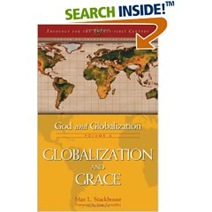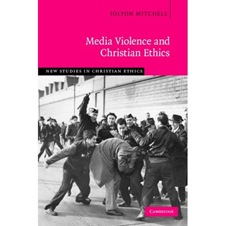A former colleague of mine suddenly passed away midnight last night. All who know him are shocked. By virtue of his lifestyle and faith, he shall be remembered as a paradigm of God's servant and a model for all Christians — peaceful, joyful, loving, simple, in every sense. His life is itself a profound and totally consistent theological statement.
........................................
收到舊同事傳來的電郵,轉貼了昔日機構的內聯網裡的公告天下,非常愕然。
整天腦海不斷浮現一句聖經: 「... 服事了他那一代的人,就睡了。」我怎也記不起出處,但就覺得,這真是他的寫照。
【補充:是 『大衛按神的旨意服事了他那一世的人,就睡了 ... 』,使徒行傳13:36a(和合本) —— 鳴謝提示我但不願透露身份的人】
我們那一代在機構極匱乏年代加入食粥食飯一起膽搏膽的,都稱他表哥。
他到底比我大多少?我也搞不清楚。八年?九年?還是十年?那沒關係,反正他從外貌到內心,永遠都是個小子。
那年,他卅三歲,負責策劃機構的福音營。合作的教會有人當他小朋友,說他最多廿三歲。
那個年代,表哥創造的佳話一籮籮。
譬如他和兆明哥潔仁哥三傻遊日本的刻苦背囊團,聽說至今仍有人津津樂道。
又譬如機構第一屆(可能也是唯一一屆)同工乒乓球大賽,他因為過份藝高人膽大定過抬油,結果敗給技術稍遜一皮的潔仁哥,屈居亞軍。
最令人側目的,莫過於竟然追求到部門裡自己的助理,上帝在週邊一眾寂寞男士面前為他擺設筵席。
另外某次出營之後累得在地鐵上站著睡了覺,來回幾轉都過了站沒下車的往事,相信沒有多少人知道了。
可以想像,在那些近十年才跟他合作和相處的年輕同事眼中,他是可親可敬的長輩,親力親為毫無架子,大鑊當前心如止水毫不變色,疾如風徐如林掠如火不動如山。
在我眼中,表哥堪稱上帝僕人的典範,是基督信徒的榜樣。平和低調,冷靜熱情,不講高言大智只管默默耕耘,不逐名位不霸資源全心信靠,信心單純常常喜樂凡事謝恩,更以自己的生活方式來盛載對世界的關懷、對公義的執著。
因是之故,他是我非常重要的神學導師 —— 雖然我知道表哥對於鑽探深奧的神學理論頗不以為然 (對我選擇讀神學博士或許也不大以為然),但他的整個生命,本身就是一套完全表裡一致的神學宣告。(His life is itself a totally consistent theological statement。)
猶記得當年機構推動簡樸生活運動,比香港後來的綠色運動早了五六年;表哥沒有拋過一句全球經濟剝削甚麼甚麼偉大理論,只是身體力行,用自己的生活見證一切。
我曾經有最少十五年完全不碰咖啡,就是因為他用短短兩句話向我道破了跨國剝削的癥結。直到近年,比較容易接觸到fairtrade coffee,我才偶爾稍為喝一點。
十多年前,我跟隨表哥所帶的大隊,到沙巴生態遊,攀神山,認識了多年前從尼泊爾高峰把他救下山的救命恩人傑佬。可是他怎也敵不過高山稀薄的氧氣和壓力,坐在距離山頂只有幾百公尺的石上,望峰而泣。我相信,那一刻表哥接納了上主給他劃定的界線。
我離開幾年,跟他都沒再連絡,一直幻想著有朝學成,再找他暢聚,讓他審查一下這個傻仔,讀完神學博士仍舊是傻仔一名,沒有開口埋口用學術掟人。
如今,上主照顧了表哥休息的願望,盼望祂也照顧未能休息的嫂嫂。
今午,在新約聖經讀到一句形容亞伯 (Abel) 的話,覺得同樣可以用來形容我們的表哥:
『雖然死了,但因著信,仍舊說話。』(希伯來書11:4b)









